"Health Matters: Communicable Diseases''
I'm @akbarmia
from Bangladesh.
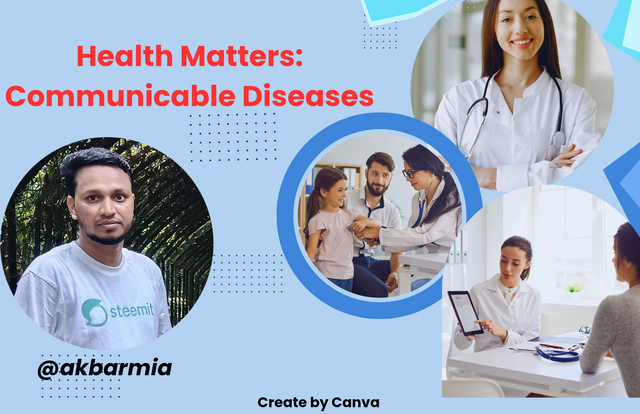
Infectious diseases are diseases caused by an infectious bacterium, virus, fungus, or parasite that can spread from person to person. Like sneezing, coughing, flu, etc.
Physical Contact: The disease can be spread by shaking hands, hugging, or skin-to-skin contact with an infected person. For example, skin diseases or bacterial infections.
Sneezing and Coughing: When someone sneezes or coughs, the virus or bacteria from his respiratory tract can reach other people. As a result, flu or cold may occur.
Infected Materials: If the materials used by an infected person are used by someone else, then that person may also become infected. For example door handle, mobile, toilet, seat etc.
Blood sharing: Infectious diseases can be spread when sharing blood, through infected needles. For example, HIV or hepatitis B.
Mosquitoes or insects: Some infectious diseases are spread through mosquito bites, such as dengue or malaria.
Sexual intercourse: Unsafe sexual intercourse can also spread infectious diseases.
Unclean environment: Due to the presence of an untidy surrounding environment, various disease germs and boss bacteria are created, and it causes various types of diseases.
Good hygiene practices can significantly help prevent the spread of infectious diseases. The main reason for this is that various pathogens, such as viruses, bacteria, fungi, etc., often accumulate on hands, skin, nails, clothing, and household surfaces before entering the human body. Following are some effective ways to prevent infectious diseases:
- Regular hand washing with clean water and soap will help prevent germs from entering the body through food or mouth.
- Wearing a mask helps prevent the spread of respiratory diseases.
- Keeping the home and workplace clean with regular disinfectants reduces the chances of germs living and spreading.
- Covering the mouth and nose with a tissue or elbow when sneezing and coughing and properly disposing of used tissues help prevent infection.
- Avoiding as much as possible the use of one's goods by others. For example: clothes, toothbrushes, food utensils etc.
- Avoiding crowds and keeping a certain distance from people can reduce the risk of infectious diseases.
- Getting certain vaccinations to prevent communicable diseases and following necessary hygiene practices.
- Awareness should be created in this regard among all through various meetings, seminars, programs etc.
If a person is suspected of having an infectious disease, it is important to seek medical help. Because it can reduce the complications of the disease and increase the chances of the patient to recover. Infectious diseases can spread quickly, so it is important to isolate the patient by seeking medical help and providing proper treatment so that others are not infected. With proper treatment, the patient can recover quickly, and at the same time, other members of the family and society are also protected from the risk of infection. Prompt treatment of suspected infectious diseases is essential for the safety of one's health and that of the community.
Infectious diseases have a major impact not only on health but also on social, economic, and cultural life. Below are some examples of infectious diseases:
Tuberculosis:Tuberculosis is a deadly infectious disease that affects the lungs and can be spread from person to person. Millions of people worldwide contract and die from tuberculosis each year, especially in low- and middle-income countries.
Influenza: Influenza is a viral infectious disease, which usually affects the lungs, throat and nose. Causes fever, cough, sore throat, headache, fatigue, and body aches. Many die from serious infections.
Covid-19: Covid-19 is an infectious disease caused by a virus called SARS-CoV-2. It was first identified in 2019 and has become a worldwide epidemic. Common symptoms include fever, cough, shortness of breath, loss of taste and smell, fatigue, and sore throat. Millions of people have died and the world is in financial trouble.
Also, there are infectious diseases like
Dengue Fever,
Malaria,
HIV,
Hepatitis B,
Measles,
Cholera Etc.
Public health measures such as vaccination and quarantine play an important role in controlling the spread of infectious diseases. They are considered to be effective strategies for the prevention and control of infectious diseases. Vaccination is a preventive measure that builds immunity in the body. It activates the immune system so that the body can fight against a particular pathogen.
Quarantine is the system in which infected or potentially infected individuals are separated to prevent them from spreading the disease to others. Quarantine can stop the spread of disease by keeping infected people isolated.
Together, these two systems play an effective role in protecting public health at large, reducing infection and helping to prevent epidemics or epidemics.
I invited @nurnobi10, @mahadisalim, @enamul17.
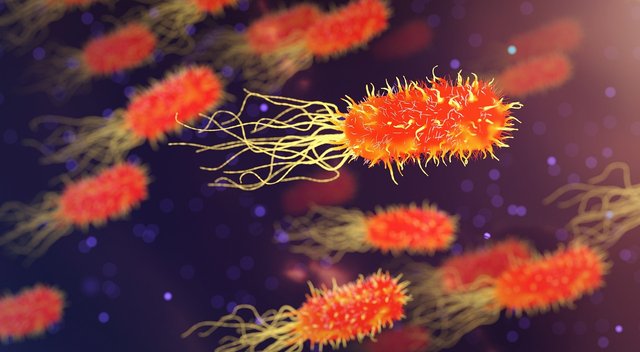
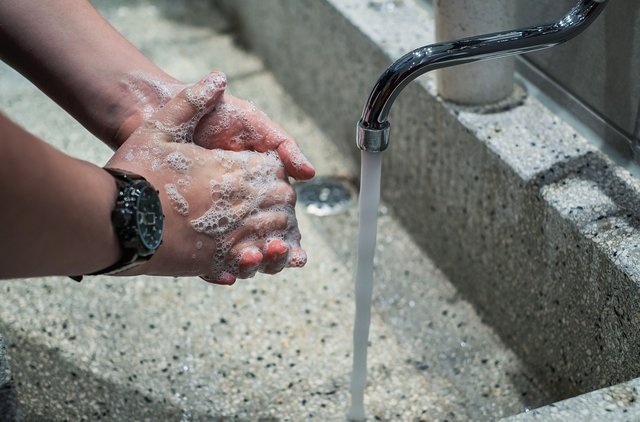
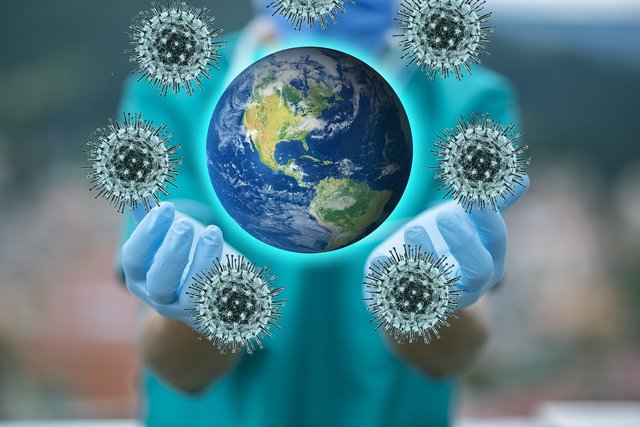
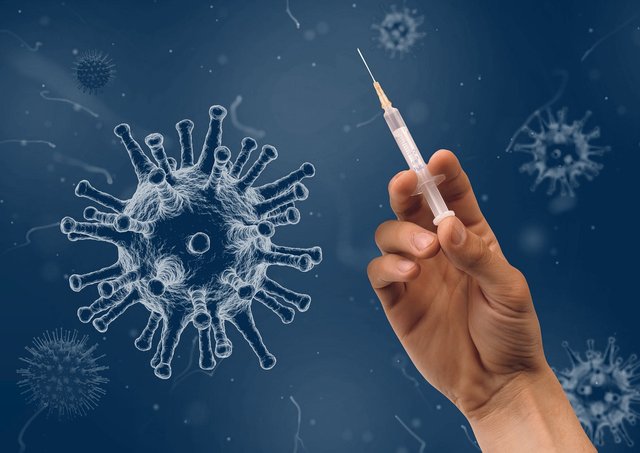
Hey brother. Stop using ChatGpt, I noticed that your posts contain AI. Please Stop this. This can have a bad effect on your account.Ai in intolerable. Stop this right now. Your post contains 80% of the AI.I hope you understand.
@suboohi
thank you, I understand that. I will avoid it later.